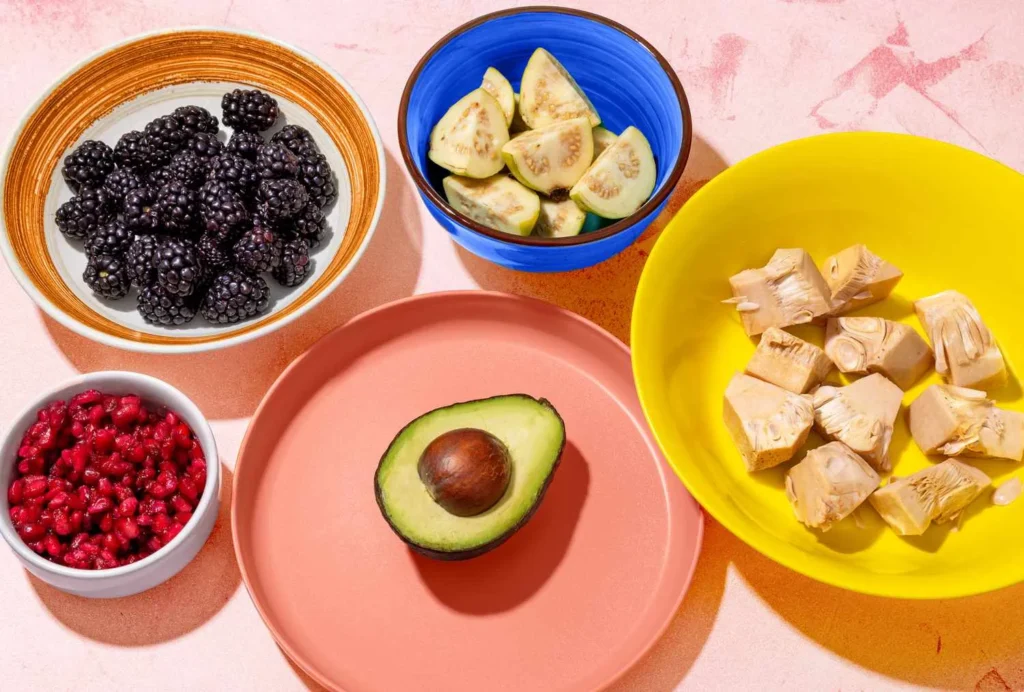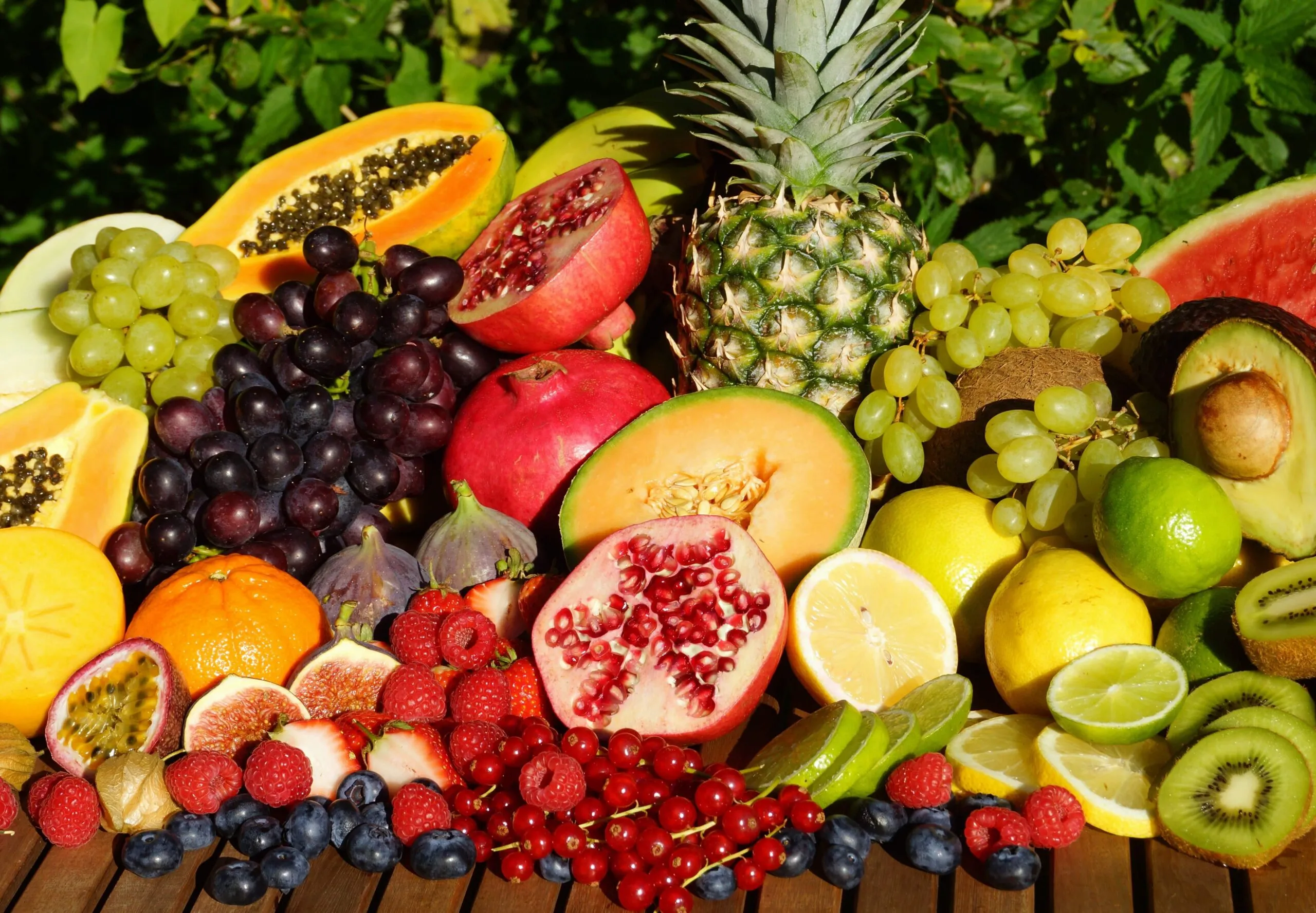When we think of high-protein foods, fruits rarely come to mind. Meats, dairy products, legumes, and nuts are frequently linked to protein. But did you know that some fruits can also provide a modest yet beneficial source of protein? While fruits won’t replace your protein shake, they can support your protein intake and offer an added bonus of fiber, antioxidants, vitamins, and natural sugars — making them a powerful part of a balanced diet.
In this guide, we’ll explore top high-protein fruits you can incorporate into your daily nutrition to give your body a clean energy boost and support everything from muscle repair to metabolism.
Why Protein Matters in Your Diet
Protein is a macronutrient essential for building and repairing tissues, producing enzymes and hormones, and maintaining muscle mass. The recommended daily intake for protein varies, but generally:
- Men need around 56 grams/day
- Women need about 46 grams/day
Your needs may be greater if you’re pregnant, active, or trying to gain muscle. While fruits are not protein powerhouses, they’re valuable for rounding out your nutrition, especially for vegetarians, vegans, or those following plant-based diets.
10 High-Protein Fruits You Should Add to Your Diet
1. Guava
Protein: 4.2g per cup (raw)
One of the highest-protein fruits, guava is a tropical gem that also provides vitamin C, fiber, and antioxidants. It’s a great fruit to snack on raw or toss into a smoothie for a refreshing, protein-packed boost.
2. Avocado
Protein: 3g per cup (sliced)
Though better known for its healthy fats, avocado is surprisingly high in protein compared to most fruits. It also delivers fiber, potassium, and heart-healthy monounsaturated fats — making it ideal for everything from salads to toast toppings.
3. Apricots (Dried)
Protein: 2g per ½ cup
Dried apricots are not only rich in iron and fiber, but they also deliver more protein per serving than most fresh fruits. Just be mindful of the sugar content in dried fruits and enjoy in moderation.
4. Raisins
Protein: 1g per ¼ cup
Raisins are another dried fruit that contributes small but significant protein, especially when added to oatmeal, yogurt, or trail mix. They also contain iron and antioxidants for extra nutritional support.
5. Blackberries
Protein: 2g per cup
Blackberries are packed with antioxidants, vitamin C, and fiber, and they have more protein than many other berries. Add them to cereals or smoothies for a delicious, low-calorie, nutrient-dense snack.
6. Oranges
Protein: 1.2g per medium orange
While better known for vitamin C, oranges also provide a decent amount of protein. Combine oranges with nuts or Greek yogurt to create a well-rounded protein snack.
7. Bananas
Protein: 1.3g per medium banana
Bananas are rich in potassium and fiber, and though they offer modest protein, they are an ideal post-workout snack when paired with nut butter for a muscle-repairing combo.
8. Kiwi
Protein: 2.1g per cup (sliced)
Kiwis are small but mighty — loaded with vitamin C, fiber, and more protein than many fruits. Enjoy them raw, in salads, or blended into smoothies.
9. Mulberries (Dried)
Protein: 2.7g per 1/4 cup
Dried mulberries are a hidden protein gem, offering more protein than most berries. They’re also rich in iron, vitamin C, and resveratrol — a compound linked to anti-aging benefits.
10. Jackfruit
Protein: 2.8g per cup (raw)
Jackfruit is not only a popular meat substitute in vegan dishes, but it’s also one of the highest-protein tropical fruits. Its chewy texture makes it versatile in curries, tacos, and more.

How to Incorporate High-Protein Fruits Into Your Diet
While these fruits alone won’t meet your daily protein goals, they can enhance your overall protein intake when combined with other foods. Try these tips:
- Pair bananas or apples with peanut butter for a protein-rich snack.
- Add guava or kiwi to a protein smoothie for a tropical twist.
- Top Greek yogurt with blackberries and raisins for a protein and fiber boost.
- Mix dried fruits into oatmeal or trail mix for an energy-packed breakfast or snack.
Benefits of Adding High-Protein Fruits to Your Diet
- ✅ Natural Energy: Fruits provide natural sugars, fiber, and hydration — great for energy without processed carbs.
- ✅ Digestive Support: High-protein fruits often come with plenty of fiber, aiding digestion and satiety.
- ✅ Weight Management: Protein helps curb hunger, and when paired with fiber, it keeps you full longer.
- ✅ Muscle Maintenance: If you’re on a plant-based diet, these fruits help contribute to your protein diversity.
- ✅ Antioxidants & Micronutrients: Unlike many protein powders or processed snacks, fruits deliver vitamins, minerals, and antioxidants alongside protein.
FAQs: High-Protein Fruits & Nutrition
Q1: Are fruits a good source of protein?
Fruits are not typically high in protein, but some — like guava, avocado, and dried mulberries — provide more protein than others. They’re not substitutes for meat, legumes, or dairy but can supplement your protein intake.
Q2: Which fruit has the most protein?
Guava tops the list with over 4g of protein per cup. It’s also rich in vitamin C, making it one of the most nutrient-dense fruits available.
Q3: Can you rely on fruits alone for protein?
No. While high-protein fruits are beneficial, they don’t provide enough protein for most adults’ needs. It’s best to combine them with legumes, grains, nuts, seeds, dairy, or plant-based proteins to meet your daily requirements.
Q4: Are dried fruits higher in protein than fresh fruits?
Yes — ounce for ounce, dried fruits like apricots, mulberries, and raisins are denser in protein due to water removal. However, they’re also higher in sugar and calories, so portion control is key.
Q5: Is avocado considered a fruit or a vegetable?
Avocado is technically a fruit — a berry, to be specific. It offers a higher amount of protein and healthy fat compared to most other fruits, making it unique nutritionally.
Q6: How can I increase my protein intake naturally?
Include a variety of protein-rich foods such as:
- Lean meats or fish
- Eggs
- Legumes (beans, lentils)
- Dairy or dairy alternatives
- Whole grains (quinoa, oats)
- Nuts and seeds
And supplement your meals with high-protein fruits for added nutritional value.
Q7: Can high-protein fruits help with weight loss?
Yes. Protein and fiber both contribute to satiety, which can reduce cravings and help control calorie intake. High-protein fruits, when consumed as part of a balanced diet, can aid in weight management and healthy snacking.
Final Thoughts
While fruits may not rival meats or legumes in protein content, certain varieties like guava, avocado, blackberries, and dried mulberries can help you meet your nutritional goals. Whether you’re looking to build muscle, control hunger, or simply eat healthier, these high-protein fruits are worth a spot in your diet.
Remember: Diversity is key. By pairing high-protein fruits with other protein sources, you’ll give your body the fuel it needs — naturally, deliciously, and nutrient-rich.




